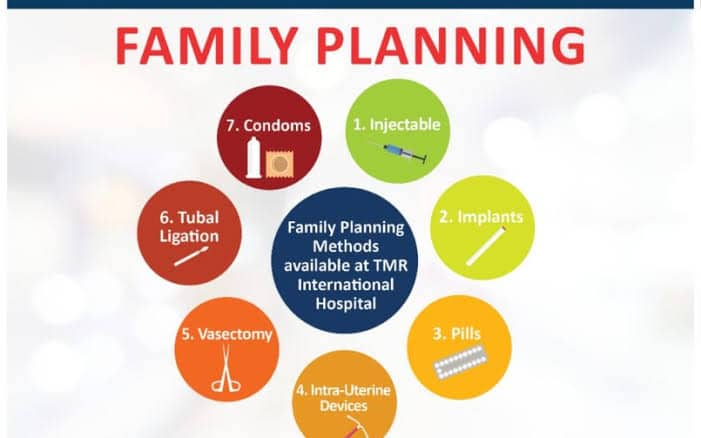Nigeria’s population exceeds every other country in Africa. This could be due to many reasons, and one of them is the lack of family planning.
Recently, though, couples have chosen family planning to assist with their childbearing and reproduction choices.
What is family planning?
Family planning, as defined by the United Nations and the World Health Organization, includes services leading up to childbirth.
It allows people to achieve their desired number of children and to determine the spacing of the pregnancies.
How does family planning work?

Family planning is usually achieved through the use of contraceptive methods and infertility treatment. For those who use contraceptives in Nigeria, the most used form is the injectable method.
Other methods include the use of pills and implants. All of these methods are available at healthcare facilities.
READ: Things to Know About Polygamy in Nigeria
Approaches to family planning

There are many approaches that one can take in order to start up family planning. These include:
The Barrier Approach
This method can only be used during sex. The sperm is blocked from reaching the egg, which thereby stops fertilization.
Most people are familiar with this process as there are male and female condoms, cervical caps, and spermicidal foam to assist in the process.
Hormonal Methods
Hormonal birth control restricts the ovaries from releasing more eggs for fertilization. As you know that when there is no egg for the sperm to fertilize, pregnancy cannot occur.
Vagina rings can help with this family planning approach. Hormonal implants and injections are also available.
SEE: 4 Best Hospitals in Abuja
Surgery
This is where the vasectomy comes in, keeping the semen free of sperm.
Likewise, women can also undergo tubal litigation, which prevents eggs from moving through the fallopian tubes to the uterus.
Family planning in Nigeria
The topic of family planning is not new to Nigeria, as it has been introduced for the last ten years. However, as little as one out of every five married women uses family planning.
A United Nations publication predicts that Nigeria will become the third most populous country in the world by 2050.
Childbirth in Nigeria is very often tied to social and religious values. In the olden days, families pride themselves on having many members. This has unfortunately allowed couples to give birth to 5-8 children, without spacing.
To help to address the fact about family planning, WHO decided to work closely with the federal ministry of health to provide proper reproductive health information.
This method is now being made available through drug stores, and health facilities.
SEE: Easy Steps To Become A Good Parent
Why do people not care about family planning?
In Nigeria, it is a norm to see families with many children. This could be because of the social norm or lack of sexual education.
We live in a society used to big families. This is probably because of the way people were brought up. They have low knowledge of female production and also sexual education. They are not properly educated. And even if they are, they do not have access to such services.
People fail to realize that low-level use of family planning is a major factor influencing the fertility pattern and population growth rate in Nigeria.
Nigerians have not been sensitized about the prevention and management of sexually transmitted infections, pre-conception counseling and management, and infertility management.
Although various policies in Nigeria encourage family planning for health and national development since 2004, this is not reflected in people’s choices.
READ ALSO: Domestic Violence: 5 Signs you are a victim and helpful resources
The positive impact of family planning

There are multiple benefits to family planning, which include spacing births for healthier pregnancies.
Family planning also has a massive impact on the economic advancement of a person. When families take planning seriously, they know how to manage their financial affairs. Planning can help assure that resources are available before the child comes.
For many, the purpose of family planning is to make sure that any couple, man, or woman who has a child has the resources that are needed to complete this goal. If the person does not wish to have a child at a specific time, they can explore the resources that are needed to prevent pregnancy, such as birth control, contraceptives, or physical protection and prevention.
The Federal Government of Nigeria has committed to providing free access to family planning commodities. One of the ways this can happen is if capacity is built for healthcare providers to know more.
Also without supplies, family planning cannot be achieved. Without family planning, women would not safely space out their pregnancies which indirectly affects the country’s population growth and also puts the health of the woman and the child at risk.
Right now, there are demands to develop cultural interventions because that’s where the work comes from. People from rural areas need to be sensitized about childbirth and ways they can provide for themselves.
READ: Blue Balls: Myth VS Reality
Conclusion
With the Nigerian Government providing contraceptives and other family planning services, this would make things much better.
The focus of family planning sensitization should be on speaking on the myths and misconceptions of family planning and expanding the provision of services. And most importantly, informing them about their health choices.
